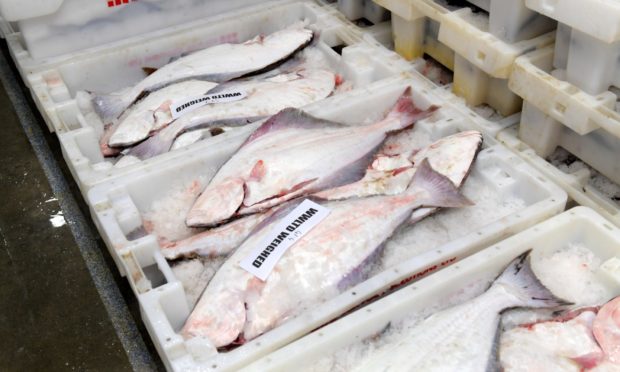Scottish seafood industry bosses fear many small firms could “go to the wall” after missing out on their biggest market of the year due to the chaos at the UK-French border.
French authorities announced late yesterday that journeys from the UK would be allowed to resume after the coronavirus ban was lifted.
But at least 1,500 freight lorries, many carrying produce to premium markets on the continent, had been sat at Dover since Sunday night, their high-value loads spoiling with every moment that passed.
Last night the UK Government continued to urge lorry drivers not to head to Kent in the hope of boarding a ferry or train such is the chaos at ports.
The hold-up – a potential “fatal blow” for a sector badly hit by the pandemic – was prompted by the closure of borders by many European states in reaction to the emergence of a new strain of coronavirus, first reported in the south of England.
UK ministers had been desperately seeking a deal with French counterparts to overcome the blockade and succeeded yesterday, though those seeking to travel must have a negative test result.
The shift came after lorries – estimated to be carrying around £250,000 worth of Scottish seafood each – began to turn around and head for home yesterday.
Others managed to negotiate alternative routes across the water, entering Europe through Belgium and the Netherlands.
“We have to remind ourselves that France is, in some cases, only the beginning of the journey,” warned Jimmy Buchan, chief executive of processors’ trade body the Scottish Seafood Association.
“Product has to go onwards to Italy and Spain, another 24 hours’ travel, and then into the distribution networks there.
“There is no question this will have a cost for our members – looking at the export of live crustaceans, every hour you lose, there are a high number of deaths.”
Mr Buchan said that with swift reopening he was “still hopeful we can get the product there and everyone can have a merry Christmas”.
But other industry bosses last night warned millions had already been lost due to missing out on festive markets, which producers work towards all year.
Seafood Scotland chief executive Donna Fordyce revealed worries that the opportunity to “salvage anything” from the ordeal was “now closed”.
She added: “From our conversations with insurance companies, no policies will cover these major losses and without financial support from government many companies that were relying on these crucial 48 hours of trading to replenish their cash flow, will tragically go to the wall.
“Millions has been lost, much of it by small companies that were depending on this trade for survival.”
Trade body Scotland Food and Drink, meanwhile, warned it was “mission impossible” to make the big markets in Spain.
Chief executive James Withers, revealed worries that loss was “irrecoverable” and would prove a “fatal blow” to smaller firms after a “horrendous year”.
First Minster Nicola Sturgeon had stood ready to take action, hours before the decision to lift the blockade.
She also revealed her ministers would be pushing the UK Government for compensation for affected exporters.
“This is the peak time of year for seafood exports and the Christmas export trade is now almost certainly lost,” she said.
Lib Dem MPs and MSPs for the Highlands and Islands warned rural Scotland’s businesses would be worst-hit and echoed calls for specific support.
